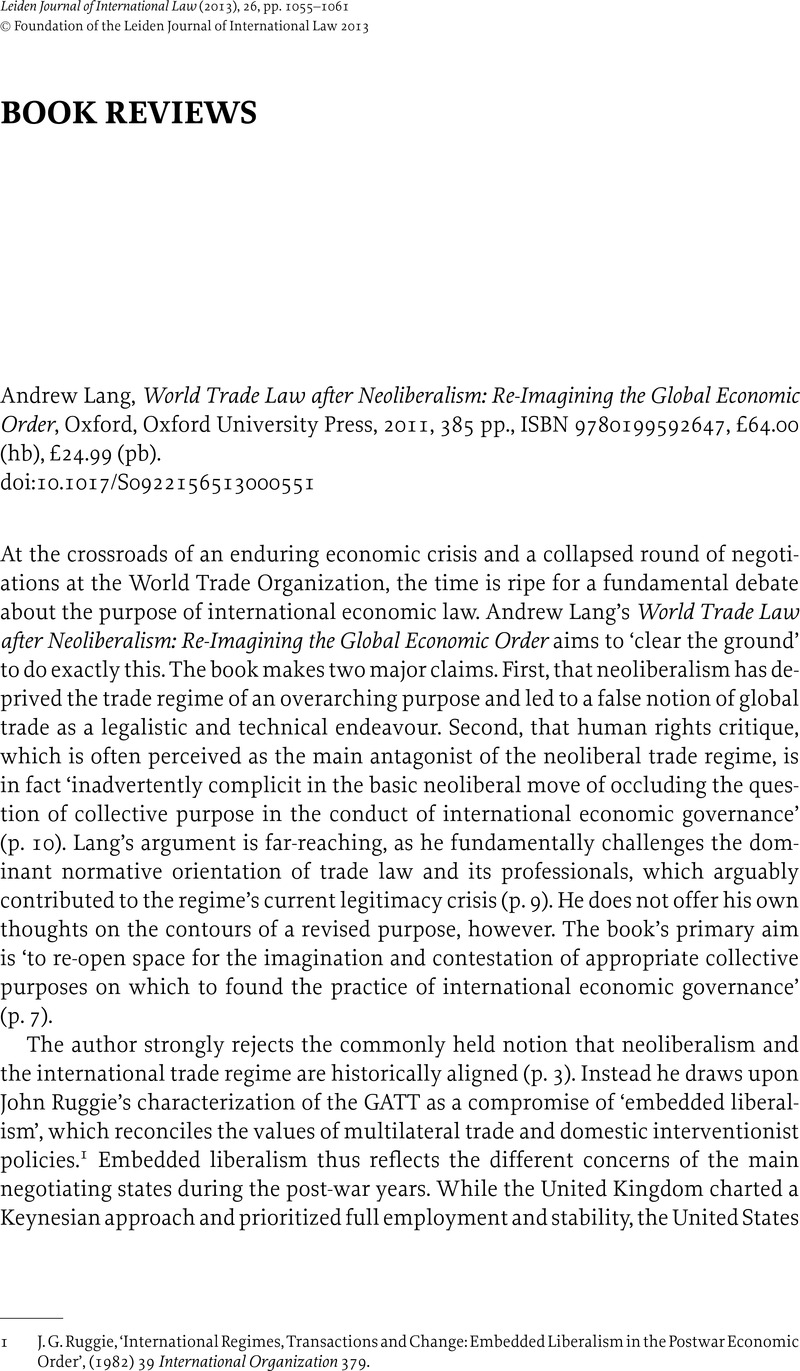No CrossRef data available.
Published online by Cambridge University Press: 08 November 2013

1 Ruggie, J. G., ‘International Regimes, Transactions and Change: Embedded Liberalism in the Postwar Economic Order’, (1982) 39 International Organization 379CrossRefGoogle Scholar.
2 R. N. Gardner, Sterling–Dollar Diplomacy: The Origins and the Prospects of Our International Economic Order (1956/1969).
3 R. Plant, The Neo-liberal State (2012), 6. In the context of the GATT, see K. W. Abbott, ‘The Uruguay Round and Dispute Resolution: Building a Private-Interests System of Justice’, (1992) Columbia Business L Rev 111.
4 K. Polanyi, The Great Transformation: The Political and Economic Origins of Our Time (1944/2001).
5 See generally S. Joseph, Blame It on the WTO? A Human Rights Critique (2011).
6 There have been amendments to the GATT between 1947 and 1994, but these cannot be attributed to the neoliberal turn.
7 Petersmann, E.U., ‘Multilevel Trade Governance in the WTO Requires Multilevel Constitutionalism’, in Joerges, C. and Petersmann, E.U. (eds.), Constitutionalism, Multilevel Trade Governance and Social Regulation (2006)Google Scholar, 5 at 6.
8 Howse, R. and Nicolaïdis, K., ‘Enhancing WTO Legitimacy: Constitutionalization or Global Subsidiarity?’, (2003) 16 Governance 73CrossRefGoogle Scholar.
9 Petersmann, E.U., Constitutional Functions and Constitutional Problems of International Economic Law (1991)Google Scholar, at xxi, quoted in Nicol, D., The Constitutional Protection of Capitalism (2010), 80Google Scholar.
10 Petersmann, supra note 7, at 43.
11 Ruggie, supra note 1, at 413.
12 Polanyi, supra note 4, at 147.